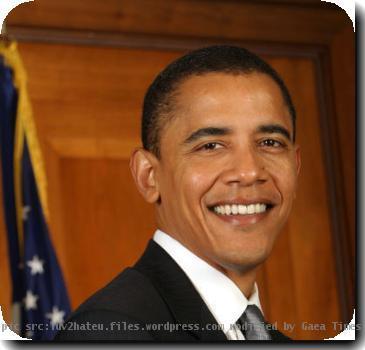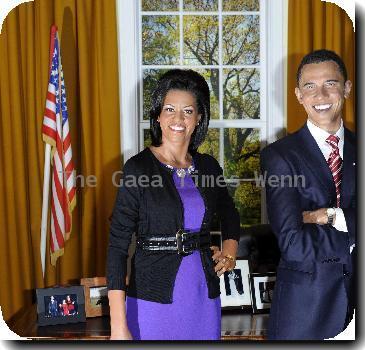Big-tent Democrats facing ever widening cracks in its base in difficult political environment
By Liz Sidoti, APSaturday, March 13, 2010
Divided party? It’s not just GOP, but also Dems
WASHINGTON — For all the evidence of a divided GOP, the Democratic Party has its own widening cracks that could make a potentially bleak election year even more dour.
In just the past two weeks, Arkansas Sen. Blanche Lincoln became the latest Democratic incumbent to attract a primary challenger, anti-abortion Democrats fought hard to derail President Barack Obama’s health care measure, and civil rights advocates and environmentalists likened the Democrat to George W. Bush.
Few pieces of the mosaic that is the Democratic Party seem happy.
Labor and gays are restless. Blacks and Hispanics are grumbling. Liberals and moderates are battling. Even some in Hollywood are disappointed.
Obama must bring together — and fire up — the many Democratic coalitions if he hopes to minimize expected losses for his party this fall in his first midterm elections. The risk if he doesn’t is that Democrats could become so disaffected that they stay home in November.
It’s far from too late. Passage of the health care overhaul would mean a monumental victory for Obama just when he needs one. This president will have accomplished what others before him couldn’t, a triumph that would give the fractured rank and file something to rally around.
David Axelrod, a senior White House adviser, isn’t panicking.
“We are a broad party,” he said in a recent interview. “There’s always going to be some degree of tension.”
Axelrod voiced confidence that the vast majority of the party’s loyalists will get behind its candidates this fall because the philosophical differences between Republicans and Democrats are so great.
“Whatever divides us,” he said, “that fundamental split is still animating.”
Despite the dissension, 84 percent of Democrats approve of Obama’s job performance in the latest Associated Press-GfK poll.
Republicans are wrestling with their own deep splits. There’s a family feud over whether the GOP should strictly adhere to conservative principles or be more inclusive. That infighting is prominently on display in a slew of contentious primary contests.
But the fissures among Democrats, festering for months, are striking because the party controls both the White House and Congress, and unity was in style just a year ago as Democrats celebrated the first months of Obama’s tenure with bigger majorities on Capitol Hill.
Then, the governing began in earnest — and so did the complaining.
Some of it was expected.
The Democratic Party has always been more of a coalition party than the GOP, bringing together varied factions that include labor, minorities, civil rights activists, social progressives and anti-war protesters. Each part seldom gets everything it wants. Expectations were lofty, with given the Democratic control of the government. A high bar brings the potential for serious letdowns and, thus, infighting.
“I don’t think you can say that the party’s in any state of disarray,” said former Rep. Martin Frost of Texas, a past chairman of the House Democrats campaign committee. But, he added, there are clearly divisions and divisive primaries are “not helpful.”
Perhaps nothing better illustrates the Democratic splits than the Senate race in Arkansas.
A moderate, Lincoln infuriated liberals by backing the 2008 Wall Street bailout while opposing a public insurance health care option and key union-organizing legislation. She was considered among the party’s most vulnerable incumbents for months when Democratic Lt. Gov. Bill Halter got in the race.
Now, Lincoln is promoting her independence, saying in an ad: “I don’t answer to my party, I answer to Arkansas.”
Halter has the backing of the liberal MoveOn.org and is collecting big money from labor groups.
Two other Senate Democrats facing tough races — Sens. Arlen Specter in Pennsylvania and Michael Bennet in Colorado — also have primaries even though the White House is backing the incumbents.
The fractures have been on display in other ways as well this month:
—The American Civil Liberties Union ran a full-page advertisement in The New York Times showing Obama morphing into Bush and asking “Change or more of the same?” The ad criticized Obama for even considering military tribunals for Khalid Sheikh Mohammed.
—Defenders of Wildlife ran a TV ad featuring actress Ashley Judd assailing Obama for not reversing a Bush decision lifting the federal protection on wolves in parts of the Northern Rockies. Judd says: “You promised change. But by adopting the Bush plan, your administration weakened our endangered species law and has allowed this killing to happen.”
—A dozen or so anti-abortion House Democrats are opposing Obama’s health care overhaul plan — and putting its passage in jeopardy — because it includes a provision they don’t like. The absence of a public insurance option in the legislation also has angered the left.
—Many members of the Congressional Black Caucus voted against a jobs bill that they said didn’t focus enough on job training programs or summer employment. They complain that they’re getting too little support from the country’s first black president. Obama met with them last week.
—Hispanics privately continued to question — after a year of virtual inaction — whether Obama is sincere in his promise to overhaul the immigration system even as he met with senators trying to write a bipartisan bill on the issue and repeated his pledge.
—Unions said they will take sides in primary races and labor officials complained that the White House hasn’t pushed legislation that would make it easier for unions to organize workers. The AFL-CIO also rebuked Obama for condoning mass firings at a poorly performing Rhode Island high school.
—The gay community is fretting over the pace at which Obama has addressed their top issues such as repealing the 17-year-old law that bans gays from serving openly in the military. Obama needs Congress’ blessing to do that, but there’s resistance.
“There are frustrations that we haven’t been able to get as much done that we would like to, especially as health care drags on,” acknowledged Gov. Martin O’Malley, D-Md. He predicted “less griping and more coalescing” once that’s completed, and unity come November.
Tags: Arkansas, Barack Obama, District Of Columbia, Environmental Activism, Government Regulations, Health Care Reform, Industry Regulation, North America, Political Issues, Political Organizations, Political Parties, United States, Washington





